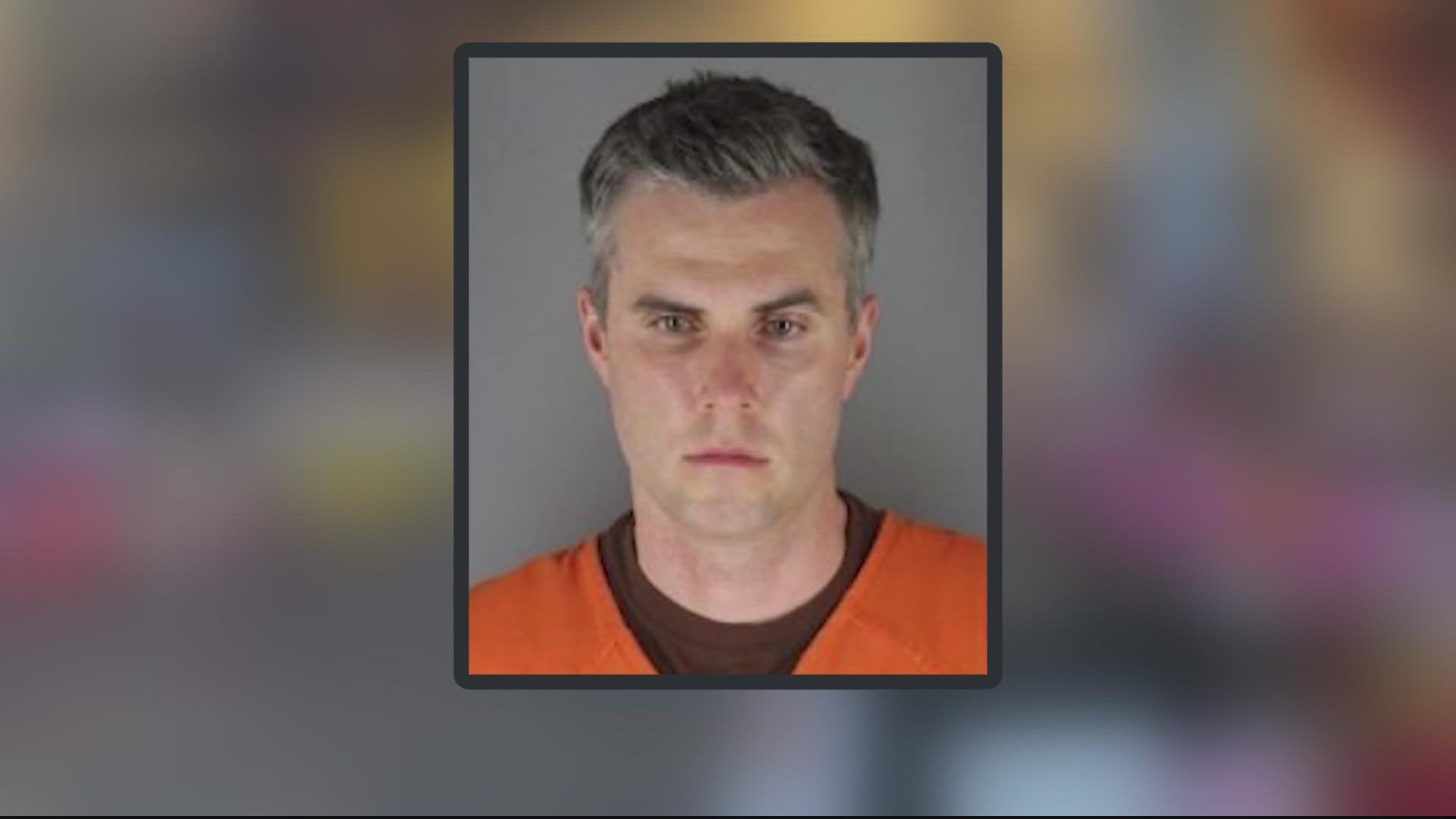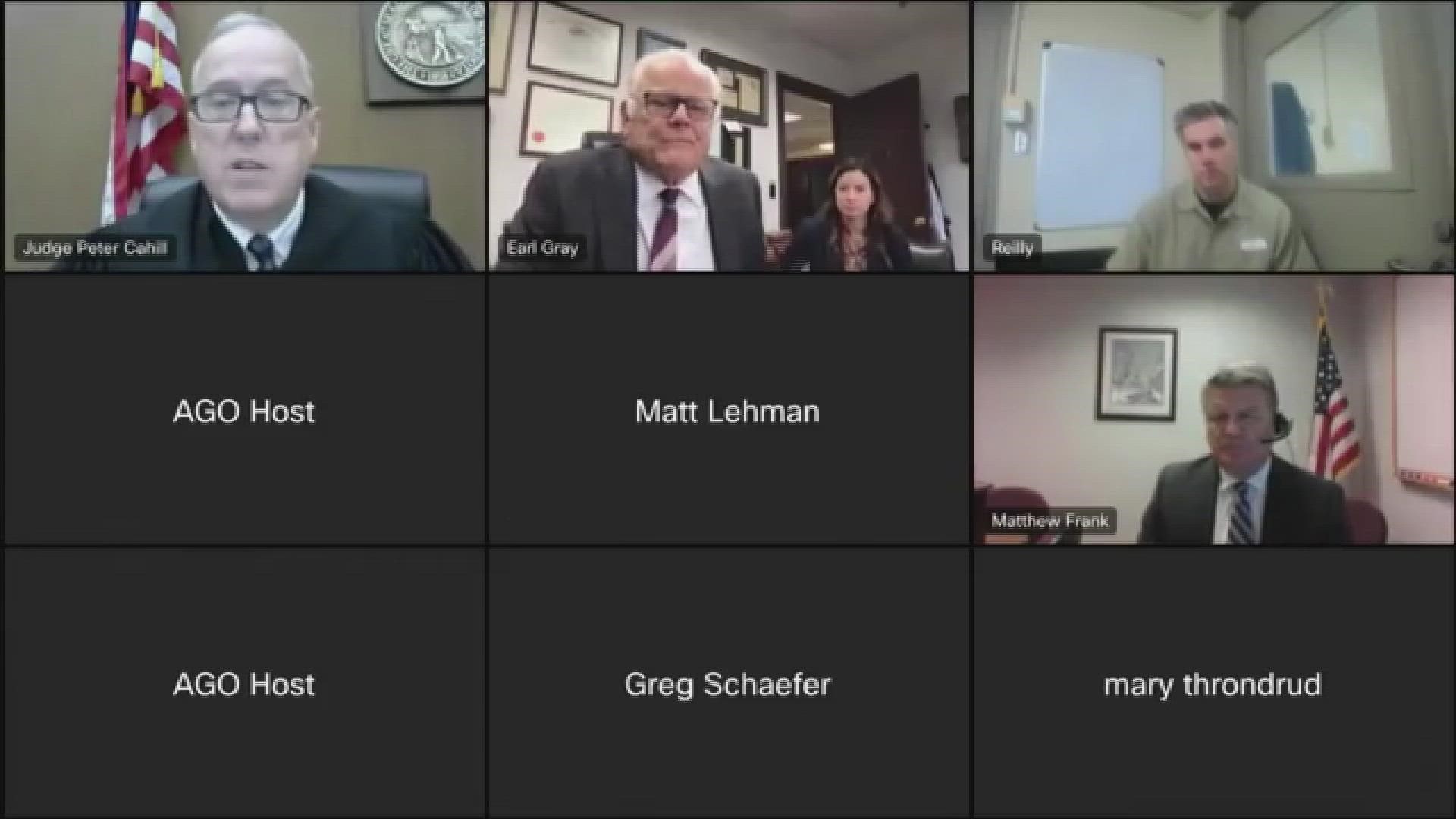MINNEAPOLIS — Editor's note: The attached video first aired on July 21, 2022
A former Minneapolis police officer who struck a deal to plead guilty to a state charge of aiding and abetting second-degree manslaughter in the death of George Floyd was officially sentenced to 36 months behind bars.
Thomas Lane is already serving a 2 1/2-year federal sentence for violating Floyd’s civil rights. On the state side, prosecutors and Lane’s defense team agreed to a recommended sentence of three years, a downward departure of five months from the recommended 41 months. Prosecutors agreed to allow Lane to serve the state sentence concurrently (at the same time) with his federal sentence, and do it in a federal facility.
In a video conference from the Federal Correctional Institution Englewood, the low-security federal prison in Littleton, Colorado, assistant attorney general Matthew Frank and defense attorney Earl Gray laid out their reasoning behind the plea deal and the agreed-upon 36-month sentence.
Judge Peter Cahill agreed, sentencing Lane to three years with credit for 31 days served. The judge mandated that Lane not possess firearms for the rest of his life, and ordered him to register as a predatory offender. Cahill did note that the former officer played a lesser role in Floyd's death, and accepted responsibility for his actions.
In an odd twist, Judge Cahill then adjourned the hearing and logged off, but the live stream remained active. Lane, live from the federal correctional facility, went off about the requirement about having to register as a predatory offender.
"I have to register as a predatory offender? What the F*** is that? Jesus Christ," Lane exploded.
Defense attorney Earl Gray said he didn't know.
"That's what Chauvin has to do," Lane fumed. "So if I had a minimal role, why the F*** do I have to that?"
At that point a clerk opened her mic and reminded the men that the feed was still live, and Lane stopped talking.
“Tom, I’ll look into that. We’ll talk,” Gray assured his client.
KARE 11's Lou Raguse later confirmed that Judge Cahill misspoke, and Lane does not have to register as a predatory offender.
Floyd, 46, died in May 2020 after Officer Derek Chauvin, who is white, pinned him to the ground with his knee on Floyd’s neck as the Black man repeatedly said he couldn’t breathe. Lane, who is white, held down Floyd’s legs. J. Alexander Kueng, who is Black, knelt on Floyd’s back, and Tou Thao, who is Hmong-American, kept bystanders from intervening during the 9 1/2-minute restraint.
The killing, captured on widely viewed bystander video, sparked protests in Minneapolis and around the globe as part of a reckoning over racial injustice.
Chauvin was convicted of murder and manslaughter and was given a 22 1/2-year state sentence in 2021. He also pleaded guilty to a federal count of violating Floyd's civil rights, and his state and federal sentences are being served at the same time.
RELATED: Ramsey County approves settlement with jail officers who were told they couldn't guard Derek Chauvin
Kueng and Thao were also convicted on federal civil rights charges and were sentenced to three and 3 1/2 years respectively. They have not yet reported to federal prison, and are scheduled to go to trial on state charges of aiding and abetting both murder and manslaughter in October.
When Lane pleaded guilty to aiding and abetting second-degree manslaughter earlier this year, he admitted that he intentionally helped restrain Floyd in a way that created an unreasonable risk and caused his death. As part of the plea agreement, a more serious count of aiding and abetting second-degree unintentional murder was dismissed.
In his plea agreement, Lane admitted that he knew from his training that restraining Floyd in that way created a serious risk of death, and that he heard Floyd say he couldn’t breathe, knew Floyd fell silent, had no pulse and appeared to have lost consciousness.
The plea agreement says Lane knew Floyd should have been rolled onto his side — and evidence shows he asked twice if that should be done — but he continued to assist in the restraint despite the risk. Lane agreed the restraint was “unreasonable under the circumstances and constituted an unlawful use of force.”
Lane did not speak at his federal sentencing and it was not clear if he would speak on Wednesday, though he has a right to make a statement.
Watch more local news:
Watch the latest local news from the Twin Cities in our YouTube playlist:


